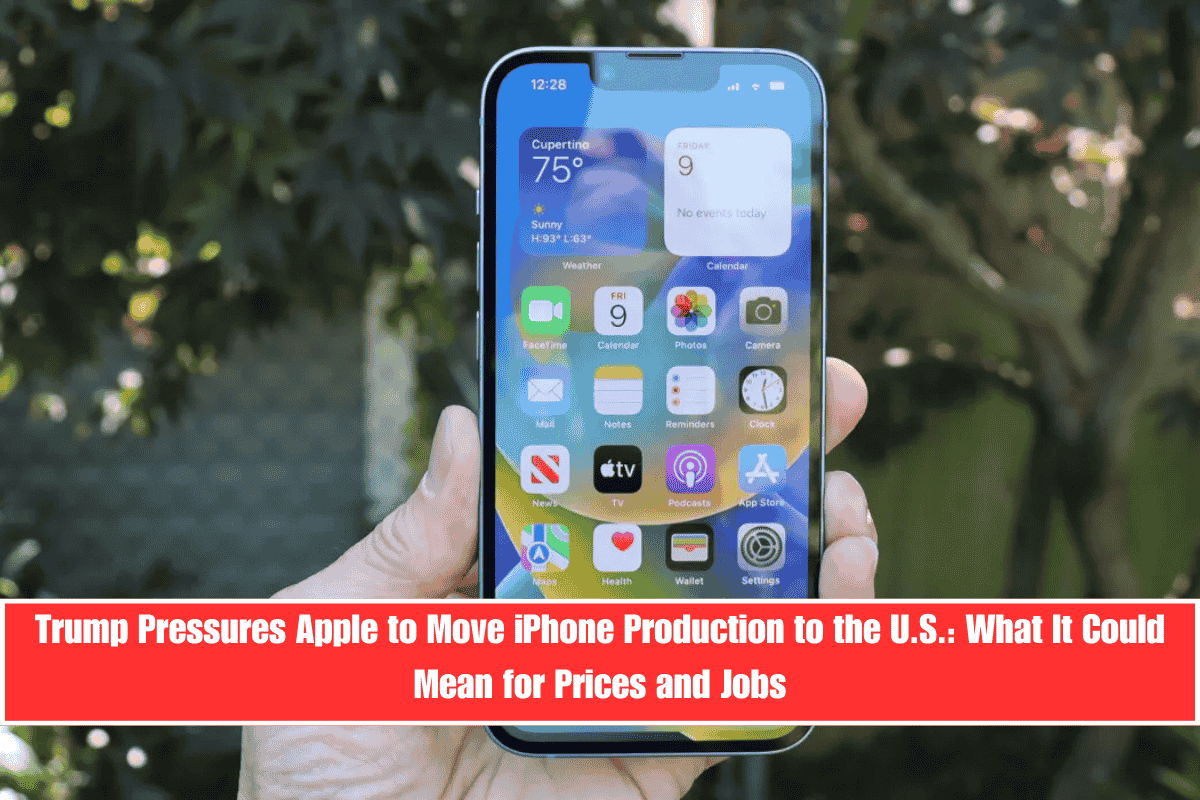Apple is facing fresh pressure from former U.S. President Donald Trump to bring iPhone manufacturing back to American soil. Trump, known for his strict stance on tariffs and trade, has made it clear that if Apple doesn’t shift its iPhone production to the United States, a 25% tariff will be imposed on each imported phone. This could drive up iPhone prices and shake up the global tech industry.
Trump’s Bold Demand to Apple
Trump issued the statement on his social media platform, Truth Social, where he directly called out Apple CEO Tim Cook. He said he expects all iPhones sold in the U.S. to be made within the country. If not, Apple would face a 25% tariff on each device — which could increase the average iPhone cost by $250, based on a standard $1,000 price tag.
This push aligns with Trump’s ongoing efforts to move manufacturing back to America, especially from countries like China and India.
A Difficult Task for Apple
Right now, about 90% of Apple’s production takes place in China, a country that has often been the main focus of Trump’s tariff policies. Although electronics were once exempted from these tariffs, Trump has warned he could easily change that.
Tim Cook and Apple have previously tried to maintain a good relationship with Trump. The company even announced a $500 billion investment in U.S. expansion earlier this year. But actually building iPhones in the U.S. is a much bigger challenge.
Why Manufacturing in the U.S. Isn’t So Simple
Apple has explained before that it relies heavily on foreign production not only because of lower labor costs, but also because countries like China and India have large pools of skilled technicians trained to work on complex electronics.
Moving even a portion of Apple’s production to the U.S. would take years and a massive financial investment. Dan Ives, a top tech analyst at Wedbush Securities, said the idea of fully moving iPhone production to the U.S. is a “fictional tale.” He pointed out that building a new supply chain in the U.S. would make iPhones extremely expensive — around $3,500 per phone.
It would also cost Apple roughly $30 billion just to bring 10% of its production to the U.S., and even that would take about three years.
National Security and Tech Independence
Despite the economic and logistical challenges, some U.S. officials see benefits in reshoring Apple’s supply chain. Treasury Secretary Scott Bessent said that depending on overseas production, especially in areas like semiconductors, leaves the country vulnerable. He urged companies like Apple to help strengthen the U.S. semiconductor industry.
Rising Prices Could Be on the Horizon
With or without tariffs, there are already rumors that Apple is planning to raise iPhone prices. If Trump’s proposed tariffs become real, Apple might quietly increase prices further, without directly blaming the tariffs. For now, it remains unclear how Apple will respond to Trump’s pressure, but many expect the company to look for ways to avoid the full 25% hit.
Trump’s push to force Apple into U.S. manufacturing is part of his larger plan to reduce American reliance on overseas production. While the idea may appeal to job creation goals, experts say it’s highly unlikely in the short term due to the enormous costs and time required. If Apple were to move production, iPhone prices could rise significantly — possibly affecting millions of customers. In the end, this situation highlights the complex ties between global tech companies and political decisions.


















Leave a Reply